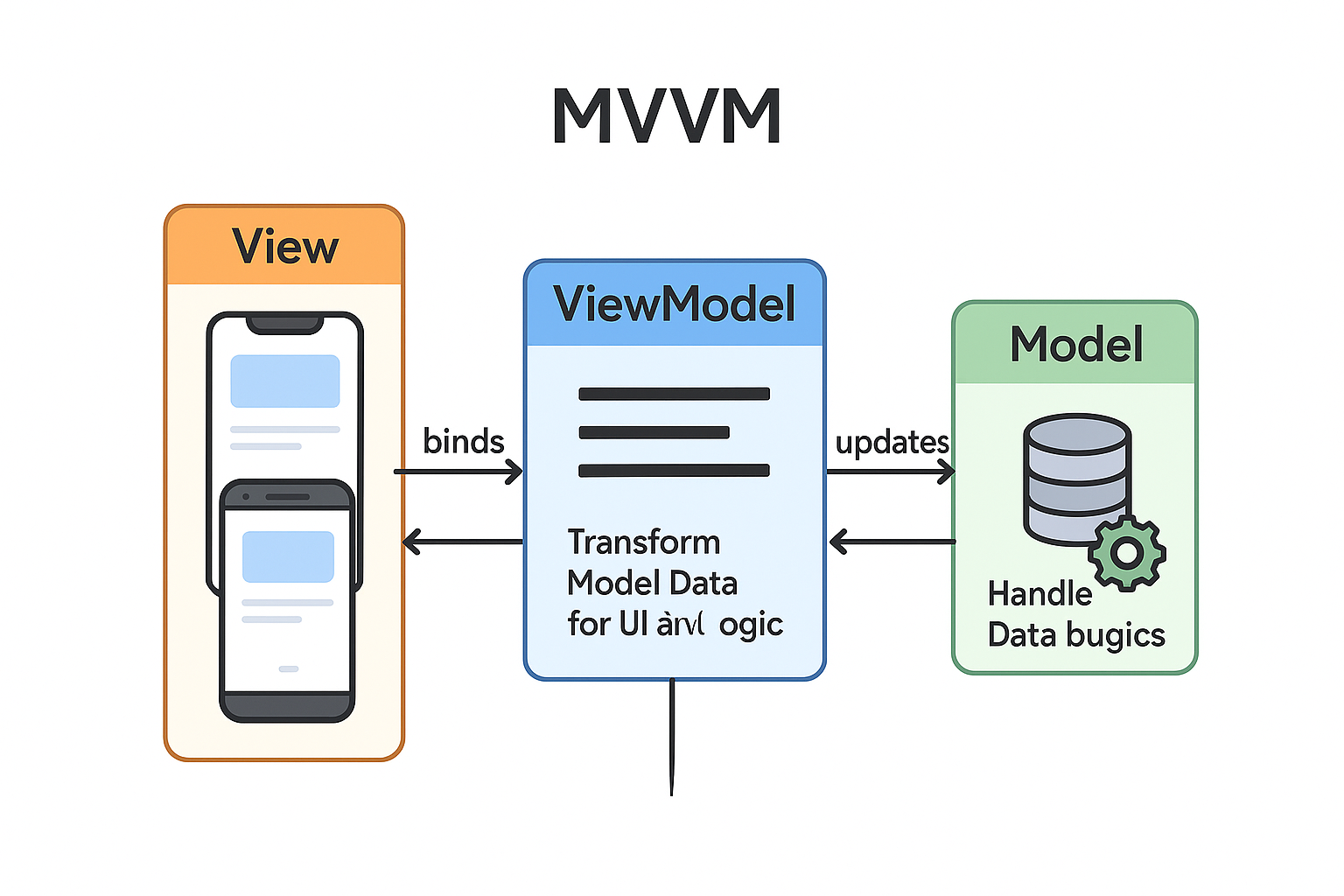
Introduction
In the rapidly evolving world of technology, the demand for skilled and experienced developers has never been higher. Whether you’re a startup or an established enterprise, the quality of your development team can make or break your project. This blog post delves into why experienced developers are crucial for your business and how they contribute to successful outcomes.
Expertise and Knowledge: The Cornerstones of Experienced Developers
In the rapidly evolving tech landscape, the expertise and knowledge possessed by experienced developers are critical assets. These professionals bring a profound understanding of various programming languages, frameworks, and tools, allowing them to make informed decisions that significantly enhance project outcomes. Their extensive hands-on experience enables them to foresee potential challenges and implement robust, scalable, and high-performing software solutions. This technical acumen ensures that projects are not only completed efficiently but also optimized for future growth, providing a strategic advantage in a competitive market.
Moreover, experienced developers excel in problem-solving, a vital skill in the dynamic field of software development. Their ability to swiftly diagnose and resolve complex issues minimizes downtime and keeps projects on track. This proactive approach extends beyond merely fixing bugs; it involves designing resilient systems capable of withstanding operational stresses. By adhering to best practices, these developers produce clean, maintainable, and efficient code, reducing technical debt and simplifying future maintenance. Additionally, their leadership and mentorship roles foster a culture of continuous learning within teams, enhancing overall skill levels and promoting innovation. In summary, the expertise and knowledge of experienced developers are fundamental to the success and sustainability of technology-driven initiatives, making them indispensable in the tech industry.
Quality and Efficiency: The Hallmarks of Experienced Developers
Quality and efficiency are pivotal in software development, and experienced developers excel in both areas. Their ability to produce high-quality code stems from years of adhering to best practices and learning from past projects. They write clean, modular, and well-documented code, which is crucial for maintaining and scaling software applications. Their rigorous approach to testing ensures that bugs are caught early, reducing the risk of costly post-release issues. This meticulous attention to detail not only results in robust and reliable software but also enhances user satisfaction by providing a seamless and error-free experience.
Efficiency, another hallmark of seasoned developers, significantly impacts project timelines and resource management. Experienced developers leverage their extensive knowledge to streamline development processes, implementing solutions swiftly without compromising on quality. They are adept at optimizing code and system performance, which leads to faster execution times and lower operational costs. Their problem-solving skills allow them to address challenges promptly, minimizing downtime and keeping projects on schedule. By balancing speed with accuracy, they ensure that projects are delivered within deadlines while maintaining high standards, ultimately contributing to the overall success and profitability of the organization.
Problem-Solving Skills: The Essential Asset of Experienced Developers
Problem-solving skills are a defining attribute of experienced developers, enabling them to navigate the complexities of software development with proficiency. These developers have honed their ability to troubleshoot and resolve issues efficiently through years of practical experience. Their deep understanding of system architecture and coding intricacies allows them to identify the root causes of problems swiftly, preventing small issues from escalating into significant setbacks. This proactive approach to problem-solving not only ensures the stability and reliability of the software but also maintains the momentum of development projects, keeping them on track and within budget.
Moreover, experienced developers excel in creative problem-solving, leveraging their extensive knowledge to devise innovative solutions to complex challenges. They are adept at thinking outside the box, applying unconventional methods when traditional approaches fall short. This capability is particularly valuable in today’s fast-paced tech environment, where novel problems frequently arise, requiring quick and effective resolutions. By combining analytical thinking with practical experience, seasoned developers can anticipate potential pitfalls and implement strategies to mitigate risks before they become critical issues. Their ability to balance immediate problem resolution with long-term system health underscores their indispensable role in any development team, ensuring both the quality and efficiency of the software development lifecycle.
Leadership and Mentorship: Cultivating Excellence in Development Teams
Experienced developers often assume vital roles of leadership and mentorship within their teams, driving both personal and collective growth. Their extensive knowledge and practical experience make them ideal mentors who can guide less experienced developers, fostering an environment of continuous learning and improvement. Through code reviews, pair programming, and regular feedback, they help junior developers hone their skills, understand best practices, and avoid common pitfalls. This guidance accelerates the professional development of team members, building a more competent and cohesive team capable of tackling complex projects efficiently.
In their leadership roles, seasoned developers also play a crucial part in shaping the strategic direction of development projects. They are adept at making critical architectural decisions that align with business goals and ensure long-term success. By promoting effective communication, collaboration, and problem-solving within the team, they create a supportive and innovative work environment. Their ability to manage and motivate team members, coupled with their technical expertise, ensures that projects are executed smoothly and meet high standards of quality. This dual role of leadership and mentorship not only enhances the performance of the current project but also builds a stronger foundation for future initiatives, highlighting the indispensable value of experienced developers in any tech organization.
Strategic Vision: Guiding Innovation and Growth
Strategic vision is a critical attribute of experienced developers, enabling them to align technical decisions with long-term business goals. Their deep understanding of both technology and market trends allows them to foresee future challenges and opportunities, ensuring that the software solutions they develop remain relevant and competitive. By integrating strategic thinking into the development process, they help shape the direction of projects in ways that maximize value and efficiency. This foresight enables them to advocate for scalable and adaptable architectures, ensuring that the software can evolve with changing business needs without requiring extensive rework.
Moreover, developers with strategic vision play a pivotal role in driving innovation within their organizations. They are skilled at identifying emerging technologies and methodologies that can provide a competitive edge, fostering a culture of continuous improvement and experimentation. Their ability to communicate complex technical concepts to non-technical stakeholders ensures that strategic initiatives are understood and supported across the organization. This alignment between technical capabilities and business objectives leads to more cohesive and successful projects. Ultimately, the strategic vision of experienced developers not only contributes to the immediate success of development initiatives but also positions the organization for sustainable growth and innovation in the long term.
Adaptability and Continuous Learning: Essential Traits of Experienced Developers
Adaptability and continuous learning are crucial traits that distinguish experienced developers in the rapidly evolving tech industry. These professionals demonstrate an exceptional ability to stay current with emerging technologies, tools, and methodologies. Their willingness to embrace change and learn new skills enables them to remain effective in their roles despite the constant evolution of programming languages, frameworks, and industry best practices. This adaptability is not just about acquiring technical skills; it also involves developing new problem-solving strategies and adjusting to shifting project requirements and organizational goals.
Experienced developers foster a culture of continuous learning within their teams, promoting the importance of staying updated with the latest advancements. They often participate in and encourage attendance at industry conferences, workshops, and online courses, understanding that knowledge sharing is vital for team growth and innovation. By integrating new insights and techniques into their workflow, they enhance their team’s productivity and the quality of their projects. This commitment to lifelong learning and adaptability not only improves their personal expertise but also positions their organizations to better handle future technological shifts, ensuring sustained competitive advantage and resilience in the face of industry changes.
Building Trust with Stakeholders: A Vital Skill for Developers
Building trust with stakeholders is a crucial aspect of an experienced developer’s role. Trust is established through consistent delivery of high-quality work, transparent communication, and reliability. Developers who effectively manage expectations and provide regular updates create a sense of confidence in their abilities. They demonstrate accountability by meeting deadlines, adhering to project specifications, and promptly addressing any issues that arise. This reliability ensures that stakeholders feel assured about the project’s progress and final outcomes.
Transparent communication is another key factor in building trust. Experienced developers are adept at explaining complex technical concepts in a way that is accessible to non-technical stakeholders, ensuring that everyone involved has a clear understanding of the project’s status and any potential risks. By fostering an environment of openness and honesty, they encourage stakeholders to voice concerns and provide feedback, which can be crucial for the project’s success. This collaborative approach not only enhances trust but also improves the overall quality of the project by incorporating diverse perspectives and expertise. In summary, the ability to build trust with stakeholders through reliability and transparent communication is essential for experienced developers, as it leads to smoother project execution and more successful outcomes.
Conclusion
Investing in experienced developers is a strategic move that pays dividends in the long run. Their expertise, efficiency, problem-solving abilities, leadership, strategic vision, adaptability, and credibility are invaluable assets that drive successful projects and business growth. If you’re looking to elevate your development capabilities, prioritizing experienced talent is the key to unlocking your potential. By doing so, you not only enhance the quality of your current projects but also lay a strong foundation for future innovation and success.





